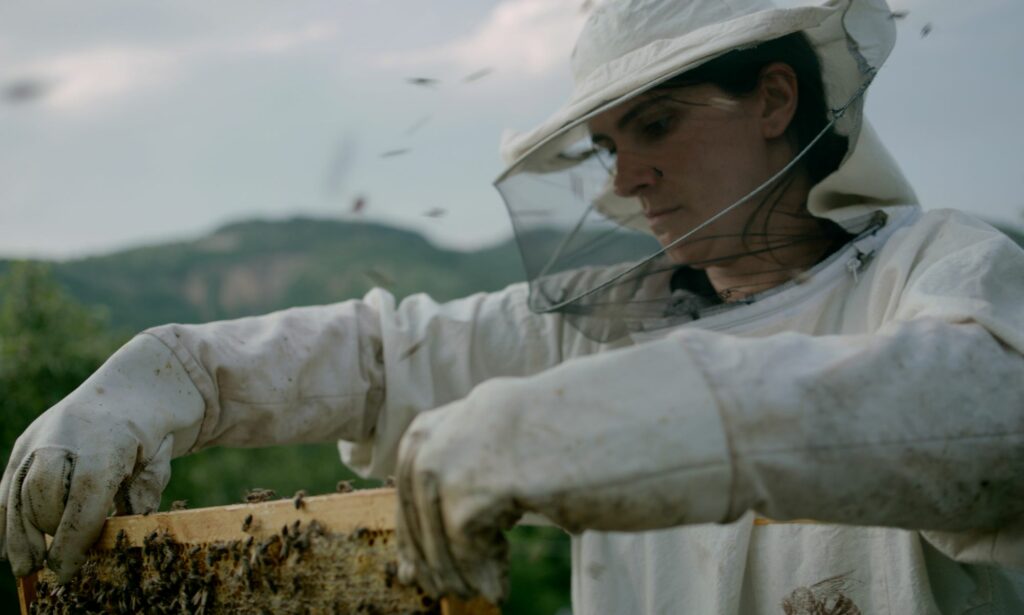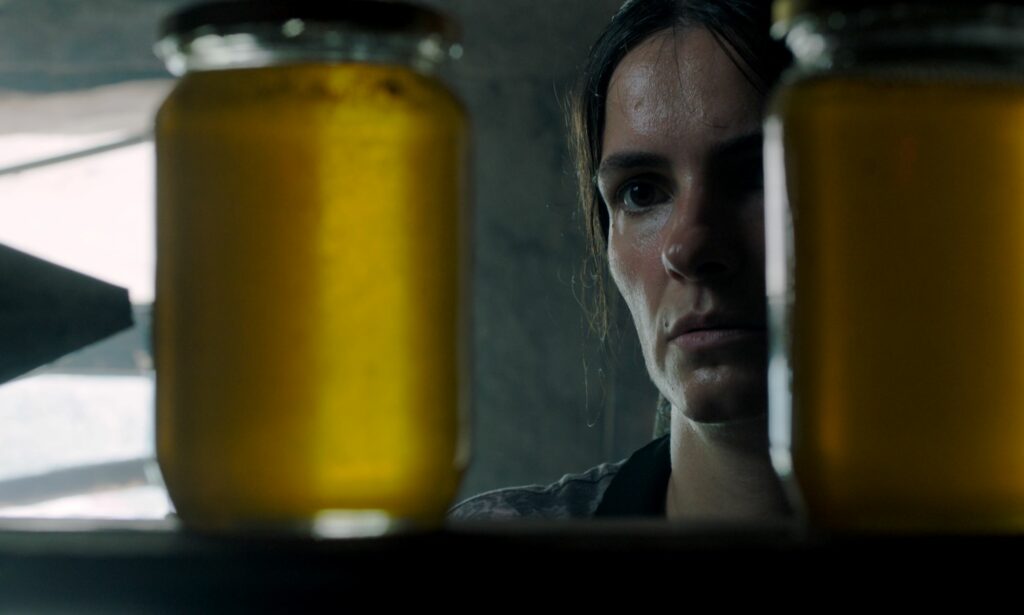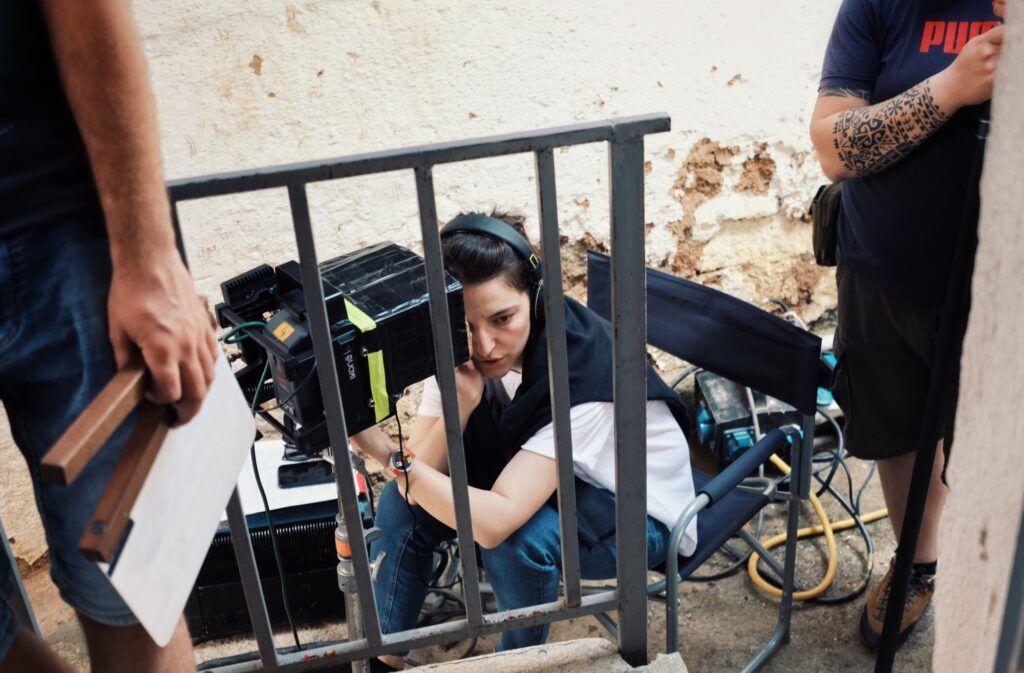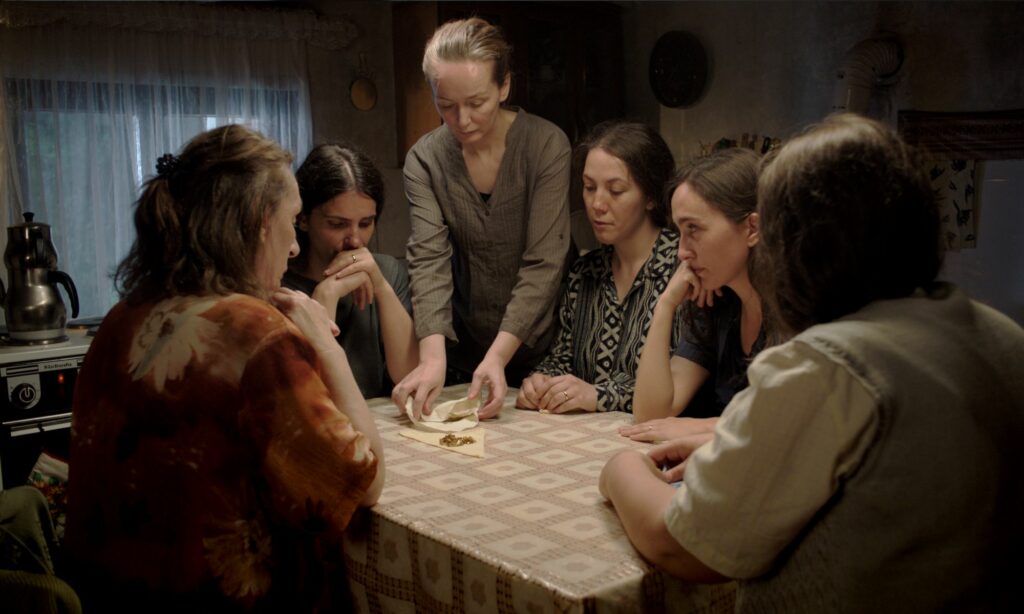Based on a true story, Blerta Basholli ’s riveting debut feature film Hive tells a heart-clenching tale of resilience and hope. Following women whose husbands have disappeared in the Kosovo war, Hive tracks their efforts to escape grief and poverty – this despite living in a traditional patriarchal village in which women’s independence is frowned upon.
One such widow is Fahrije (played by Yllka Gashi), a young woman who recognises the need to change if she is to survive. Along the way, she opens her own thriving business, much to the fury of her male neighbours. Before long, she faces open hostility from her community, with some residents even resorting to violence to keep these women down. Hive pays homage to these incredibly strong and inspirational women, all the while offering comfort in its celebration of resilience.

Directed by Blerta Basholli and executive produced by The Handmaid’s Tale star Elisabeth Moss, Hive is the winner of the Audience Award, Directing Award, and World Cinema Grand Jury Prize at Sundance Film Festival. It was also shortlisted as Kosovo’s entry for the Best International Feature Film at the Academy Awards.
Blerta Basholli discusses the film’s inspiration and production below.
Hive was a fascinating film, all the more for being based on a true story. Was there anything specific that drew you to it?
Blerta Basholli: Initially, when I heard it on TV it was the story [that caught my attention]. When I heard Fahrije’s story I thought it was something I could really connect to, so I thought “Oh yes! I think I have a good story”.
When I met Fahrije in person, it became clear to me that I had to make this film – her personality and her character really inspired me. I realised I would do anything to present this character on screen. So it was more about the inspiration and encouragement [that she embodied], her resilience and how she had this vision for her village and the business, and how she just really could do it all despite the pain and obstacles.
Did the pandemic have any effect on your production?
Blerta Basholli: Well, we were finishing the editing in Prague when the whole world began locking down. Then the studios we were using closed.
The production wasn’t all that affected by the pandemic to be honest, because it was just me and the editor and we could wear masks. The main issue was finding another studio, but we eventually found one within our budget and could finish editing.

At the time, I was talking to my family and my husband, who was like: “Everyone is buying everything at the supermarket, and you’re editing? You have to come back home!” I kept saying “yeah, just a little bit longer,” until our producer called me and encouraged me to leave the film and return to my family. When the producer calls you, you know it’s serious.
So I came back to Kosovo and we basically locked the film on zoom. I only needed two or three more days to edit, but since everyone was telling me to come home, I had to just stop and come back. We then edited those days in zoom, which was a little bit frustrating.
Then all the sound mixing was done in the pandemic; sound editing I did online, music composition I also did online. For sound mixing and colour grading, I was able to travel (with a lot of difficulty) to Switzerland and edit there for a few days. So it was a whole drama in the post-production.
At least the filming was completed before the pandemic.
Blerta Basholli: Yeah, exactly. I guess that’s why it is important to choose a story that you love because then you really will do anything for it. Then again, when you meet a person like Fahrije who never gave up despite all that she has gone through, I couldn’t complain about making a film.
With Hive being based on a true story, did that make things more interesting and exciting or did it create pressure?
Blerta Basholli: All of the above! For me, there’s something about true stories that always make them really exciting because I want to research those people, the places where it happened, things like that. There’s also a great responsibility attached to it, especially since Fahrije was so important to me as a person.

She was really happy that we were making a film about her and that Yllka Gashi was going to portray her, because she’s a well-known actress and Fahrije loved her. So, she had a lot of expectations which put a lot of pressure on us. It would have really hurt me if she didn’t like the film at the end.
I had to explain to her that I’d need to focus on a part of her story that is encouraging, and that I’d have to leave a lot of other things out. I really tried to keep her informed so that she didn’t have the wrong expectations.
Other than speaking with Fahrije, what research did you do in preparation?
Blerta Basholli: Fahrije was very present in the media: she did documentaries and a lot of TV stories, so I watched those to get an overview of what she had gone through a bit before meeting her. It was also a lot of talking to other women and forensic doctors who helped people with missing family members. For me, that was the most difficult part, to understand how it must feel to lose someone and not even know where they are. Do you accept that they are dead? Do you accept that they are somewhere alive? Or do you just keep waiting and wondering?
Hive obviously centres on women’s experiences post-war. How did it feel for you to bring those to the forefront?
Blerta Basholli: It was empowering! From the very first meeting with Fahrije, her energy affected me. That was when I realised that it was really important to show her to Kosovo, and the world. It really felt like something I had to do.
Equally empowering was witnessing the community of women in the village; how they get on, and how they have built something together for themselves and for their children. They changed the mindset of a whole village. Hopefully we can learn from them: in very difficult times, you can always find strength if you are together, and can create a supportive community and move on as they did.

Lastly, Hive has had an amazing international response. How has that experience been?
Blerta Basholli: It was very exciting! I had no idea whether this film was going to travel anywhere or if the audience would be able to relate to or understand Fahrije. Everyone worked on the film for a long time and put a lot of effort, passion and love into it. Every crew member was really dedicated and put everything they had into it, which meant it was such a reward when the film got recognition.
Rarely does a film from Kosovo get this reviewed and released in cinemas, so we are really excited that it’s being released in so many countries! But it also feels really important because of this woman’s story. I hope it gives people hope and encouragement to move on from difficult times. If Fahrije and the women of Krusha e Madhe could do it, we all should be able to.
Hive is released in cinemas 18th March.
See altitude.film for more information.
